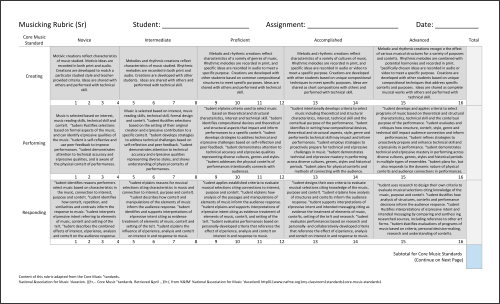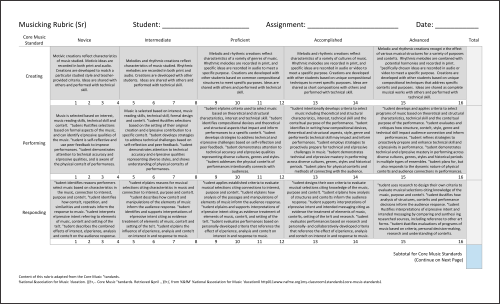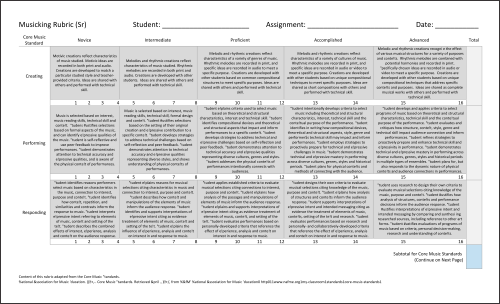Grading Scheme
|
The grading scheme below applies to all music courses, regardless of genre or level.
|
Students will be assessed throughout the year based on Grade-Level rubrics. Regardless of the status of the politics of Education in Alberta, it is important that we teach in the manner that research has shown to us to be the best strategies with the best tools. These rubrics, seen below, are based on the Core Music Standards, recently produced by the National Coalition for Core Arts Standards, which focus on Creating, Performing, Responding and Connecting. Rubrics for skills are also based on a cross-section of objectives from music curricula from around the world, including Australia, Ontario, West Virginia and of course, Alberta. Included among these skills is that of collaboration, an important skill for Engaged Thinkers and Ethical Citizens with an Entrepreneurial Spirit; the overarching goal of Inspiring Education in Alberta. These, all combined into the rubrics below, make assessment deeply rooted in research, and robust in nature.
|
It should also be noted that assessment of learning in musicking is concept-driven. Where a student may receive 70% on a skill at the beginning of the year, but 90% on the same skill at the end of the year, a cumulative method of assessing would provide that student with 80%. Students at Notre Dame Collegiate are not penalized for whatever skills they may have lacked at the beginning of the year, but rather are awarded a mark based on the end-state of their development as a percentage of what is of expected of them at any given time. This is true for Creating, Responding, and Collaborating marks.
Performing, Theory, and Skills and Technique marks are still cumulative, as each assessment targets a different series of concepts, and so must remain cumulative in nature.
Performing, Theory, and Skills and Technique marks are still cumulative, as each assessment targets a different series of concepts, and so must remain cumulative in nature.
Opus Administrative Manager - Main Tool for Organizing Music Learning Activities
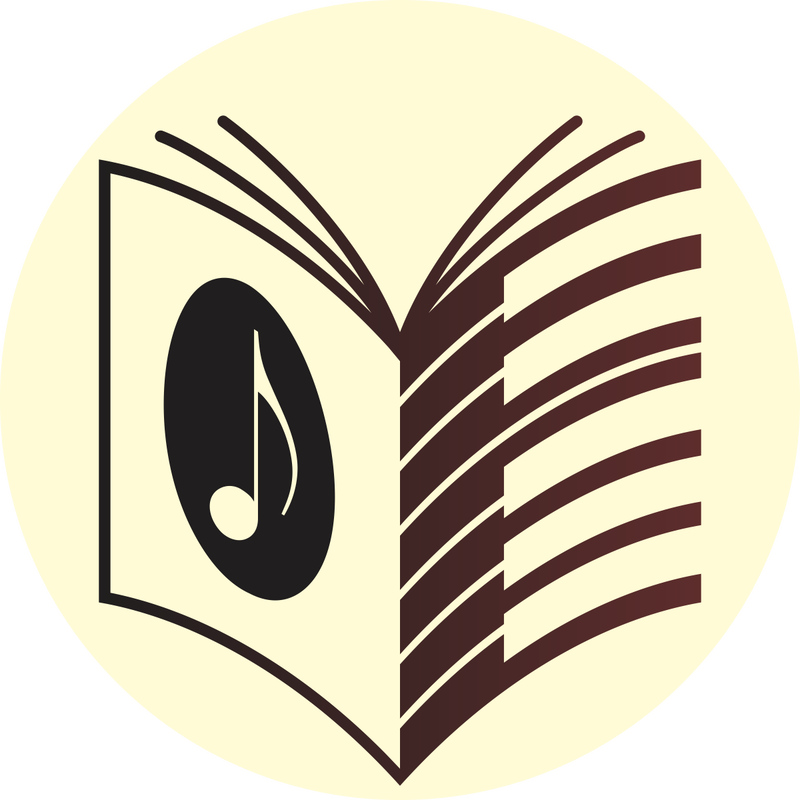
Especially designed for Notre Dame Collegiate's Music Department, the Opus Administrative Manager got its start on Discord during the COVID-19 Pandemic. Now it is the central website students connect to in order to get access to the files they need for assignments, the links they need, and also keep track of their Instruments and Hall of Fame Points. Students easily log in using their Christ The Redeemer School-Based Google Accounts, and it has no distractions from the work at hand, helping students to keep themselves organized.
Other Tools for Assessment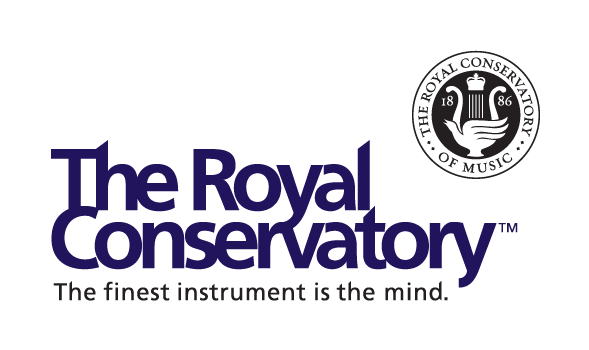
Students, particularly in the Junior and Senior Concert Bands, are instructed to standards set by the Royal Conservatory of Music in Canada. Resources are provided to the students by NDC. Students select a List A and a List B piece from the RCM resources, and may optionally choose a List C piece, which is oftentimes a popular music selection. For details, see the Recorded Assessments page.

BandLab
BandLab is a new tool to students, providing us with a free resource students can use to record their audio, including performing assignments like Royal Conservatory of Music solos. It is easily accessed through Opus. 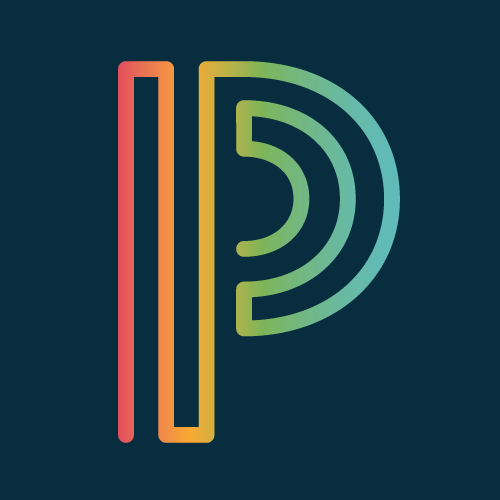
PowerSchool
For all classes at Notre Dame Collegiate, PowerSchool is the medium for communicating student progress. For details on exactly how this is done for music, visit our Assessments Page. 
Google Classroom
Google Classroom will be used minimally, namely for the completion of Responding Assignments, which will focus on practice skills and strategies and First Nations, Métis and Inuit music-making. |
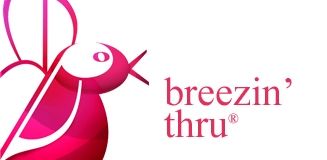
Breezin' Thru Theory
Students learn and practice their music theory knowledge and their composition strategies through these online tools, which can be accessed from home. These apps provide a drill and test environment not just to learn theory, but to practice it and develop their fluency in the language of music. Breezin' Thru now supports Google Sign-On, so you only need to know the login credentials the first time you log in. To log into either Breezin' Thru Theory, first choose the Sign In With Google button, then use the username notredame and the password note223. Once logged in, identify the band class that you are in, and you will be ready to go. Once you use this once, you will never need it again. 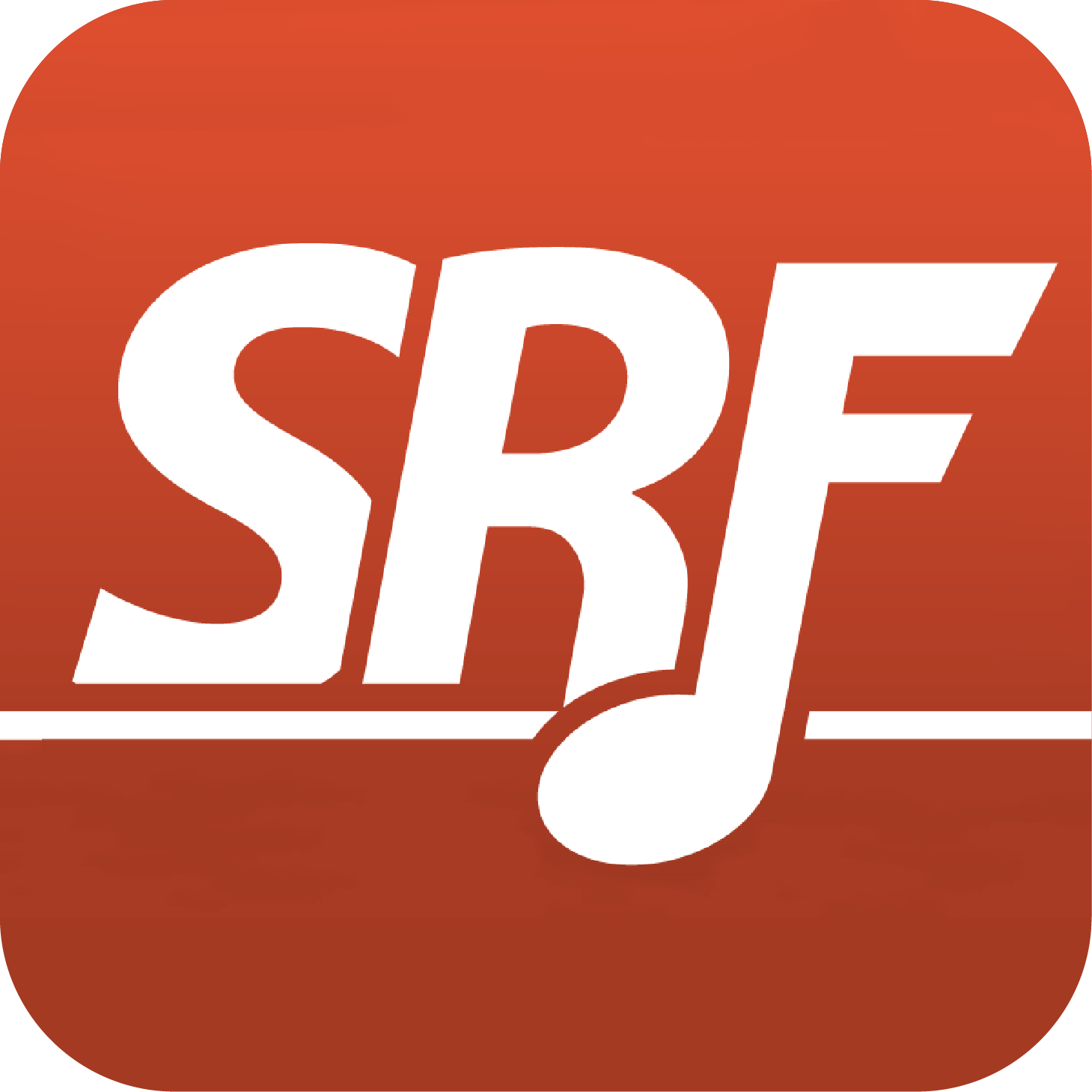
SightReading Factory
Learning to read music is done through Breezin' Thru, but applying it quickly to performing situations, that is enabled by our new tool, SightReading Factory. Students practice the musical reading skills they've learned and directly apply it to their instrument, similar to reading a book aloud in any language. intune Monthly and Strings Magazine will be resources used for Responding assignments, encouraging students to not only read music, but also read about music.
|
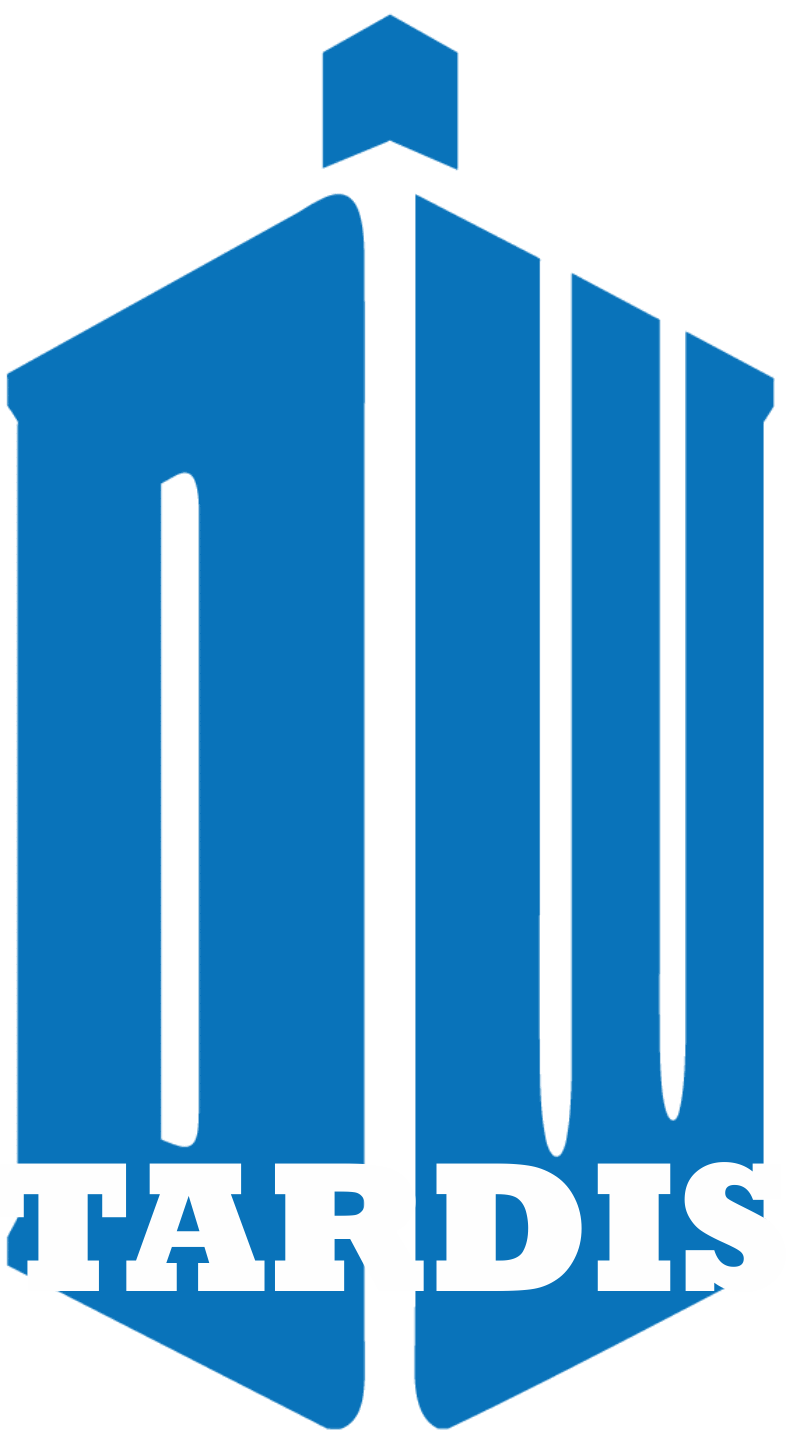
TARDIS is our sound-isolation booth in the music room. It provides a private room that students can practice or recording their playing assessments in. This, in addition to the main music room and on occasion the chapel, provide students with three spaces for practice before and after school. It must be booked in advance of use.
Grade 7 BandStudents are expected to have developed a Novice level in each category on the Musicking Rubric by the end of Grade 7, but many will also advance to an Intermediate level.
|
Junior BandStudents are expected to have developed an Intermediate level in each category on the Musicking Rubric by the end of Grade 9, but many will also advance to a level of Proficiency.
|
Senior BandStudents are expected to have developed a Proficient, Accomplished, and Advanced level in each Musicking Rubric category by the end of each Grade 10, 11 and 12 respectively.
|



